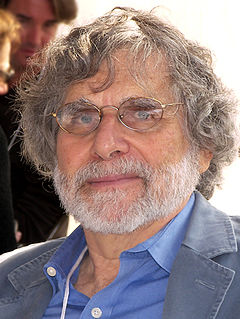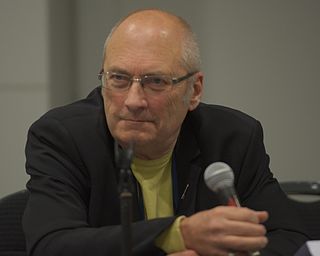A Quote by Alan Cheuse
I think fiction writers write what they do because no one else has written it and they want to read it.
Related Quotes
Everybody should read fiction… I don’t think serious fiction is written for a few people. I think we live in a stupid culture that won’t educate its people to read these things. It would be a much more interesting place if it would. And it’s not just that mechanics and plumbers don’t read literary fiction, it’s that doctors and lawyers don’t read literary fiction. It has nothing to do with class, it has to do with an anti-intellectual culture that doesn’t trust art.
I don't write because I think I have anything particularly interesting to say. I write because I love writing more than any other work I've done. I do think about entertaining the reader to the extent that I try always to write a book that I myself would want to read, but I don't think it's up for me to decide if what I've written is interesting to others. That is entirely up to others.
Read a lot. But read as a writer, to see how other writers are doing it. And make your knowledge of literature in English as deep and broad as you can. In workshops, writers are often told to read what is being written now, but if that is all you read, you are limiting yourself. You need to get a good overall sense of English literary history, so you can write out of that knowledge.
I write my first draft by hand, at least for fiction. For non-fiction, I write happily on a computer, but for fiction I write by hand, because I'm trying to achieve a kind of thoughtless state, or an unconscious instinctive state. I'm not reading what I write when I wrote. It's an unconscious outpouring that's a mess, and it's many, many steps away from anything anyone would want to read. Creating that way seems to generate the most interesting material for me to work with, though.
Writers often have a 'drunk' that is different than anyone else's. That's why it's so insidious and so damning. First of all, because they can write when they're drinking - or they think they can. A lot of writers will tell me - and this is the latest one I've heard - you drink while you're thinking about what to write, but when you actually write, you sober up.






































